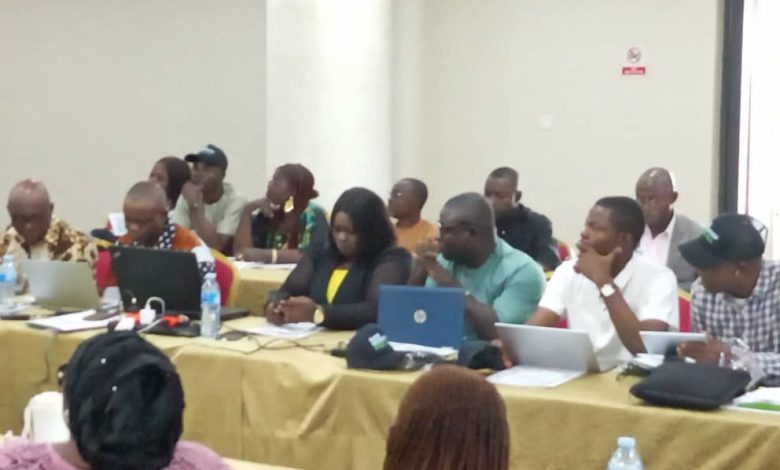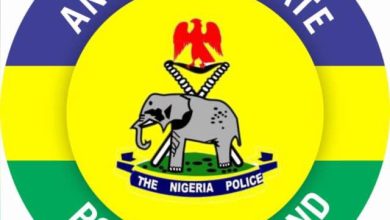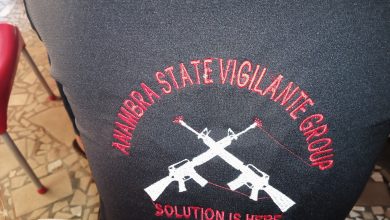
By Kenechukwu Ofomah
The need for multi-stakeholder collaboration guaranteeing a safer, more informed, and resilient migration ecosystem in Nigeria formed the crux of deliberations at a 3-day Southeast zonal stakeholders’ workshop on migration, which kickstarted on Monday in Enugu.
It was organized by the Civil Society Network on Migration and Development (CSOnetMADE), in collaboration with Centres for Migration and Development (ZME), Deutsche Gesellschaft für Internationale Zusammenarbeit (GIZ), Nigeria, with the theme, “Safe Migration for All: Building Capacity and Promoting Awareness for Regular Pathways in Nigeria.”
The engagement had as its participants, Civil Society Organizations (CSOs), Government Agencies, the Academia and Research Institutions, Media Practitioners, Youth and Workers’ Associations, International Migration Partners, and Trade Unions.
Over the three days, the target is to strengthen the stakeholders’ capacity, and share best practices, with a view to promoting safe and regular migration pathways, as well as sustainable reintegration.
Declaring the workshop open, the Permanent Secretary, Federal Ministry of Labour and Employment, Dr Sanusi Usman, represented by Comrade George Okoi observed that in Nigeria, migration continues to play a significant socio-economic role, with remittances from Nigerians in the diaspora contributing substantially to national development, supporting millions of households and stimulating local economies.
He, however, noted that while regular migration offers opportunities for skills enhancement, employment, and socio-economic growth, irregular migration remains a major challenge, exposing many Nigerians, especially the youth, to grave dangers such as human trafficking, forced labour, exploitation and even loss of lives.
“This initiative to expand safe migration awareness and build capacity across Nigeria’s six geopolitical zones is both timely and strategic. Each region of our country faces unique socio-economic realities that influence migration patterns. A nationwide engagement such as this will ensure that stakeholders in every region are empowered to respond effectively, using localized approaches that reflect the needs and contexts of their communities.
“The objectives of this workshop to educate stakeholders on regular migration opportunities, strengthen local capacities, enhance media engagement, and foster collaboration-are aligned with our national priorities and with global commitments such as the Global Compact for Safe, Orderly and Regular Migration (GCM), the Sustainable Development Goals (SDGS), and the ECOWAS Free Movement Protocol,” Usman said.
In an opening remark, the Director/National Coordinator, CSOnetMADE, Rev Fr. Emeka Obiezu, said the event is to highlight the importance of structured migration pathways, returnee reintegration, and multi-stakeholder collaboration to promote safe migration practices.
He explained that the workshop was brought down to the geopolitical zones to be able to identify and proffer solutions towards address migration issues peculiar to the respective regions
“When we met in Abuja, participants suggested that we expand the initiative nationwide, observing that irregular migration tendencies are a common experience across all six geopolitical zones of Nigeria, each facing its own set of challenges.
“For instance, while the North East and North West struggle with higher rate unemployment, and conflict related instability, the North Central faces political and economic uncertainties. In contrast, the South East, South South, and South West deal with significant youth migration pressures driven by intense job competition, uneven wealth distribution, and limited sustainable local opportunities.
“So, we planned this nationwide capacity-building program to ensure that migration stakeholders across the country are equipped with the knowledge and tools necessary to support safe and orderly migration pathways, thereby addressing one of the main root causes of irregular migration,” Obiezu posited.
On his part, Dr Austin Ezejiofor, the Head, Regular and Regional Migration Component, GIZ-ZME, while explaining the roles of the organization, said they are an implementing partner, committed to working within the frameworks of Nigeria, to offer migration counselling to migrants and potential ones.
“People interested in migration should be informed on the choices they are making. They should know the opportunities, the challenges, the legal frameworks, the professions in demand in their destination countries, and recognition of qualifications and proof of language skills.
“There is also need for them to know the opportunities that abound in their home countries, which they may not be aware of.
“These and other professional services are offered by the GIZ-ZME,” he revealed.
In a goodwill message, Comrade Eustace Imoyera James, a Senior Assistant General Secretary with the Nigeria Labour Congress, NLC, said the workshop idea identifies and places a premium on collaboration and cooperation to advance better migration governance.
He assured that the NLC has resolved to be committed to any effort and all activities that will promote better migration governance, by strengthening the alliance between workers and the other stakeholders in the workplace and society in general, in ways to continue to enrich the call for fair migration.
He said, “We have affirmed that fair migration and responsive governance are some of the ways to tame the hazards of migration, poverty, and inequality. In essence, the pursuit of fair migration ensures that the migrants, their families, businesses, receiving and host economies all benefit. We shall continue to donate efforts in the realisation of this goal.”
On their part, some of the participants, including the Anambra State CSOnetMADE coordinator, Eucharia Onyemobi and a Permanent Secretary in the Anambra State Civil Service, Engr Martin Agbili expressed confidence that the knowledge garnered by stakeholders during the 3-day event, will suffice to address teething issues that continue to drive irregular migration in the regions.




